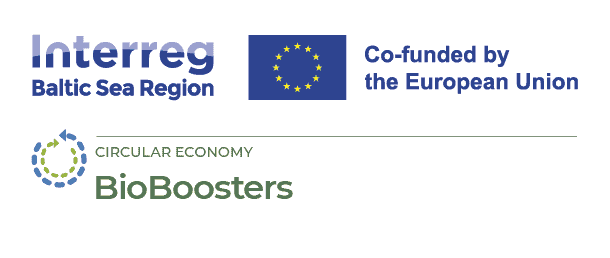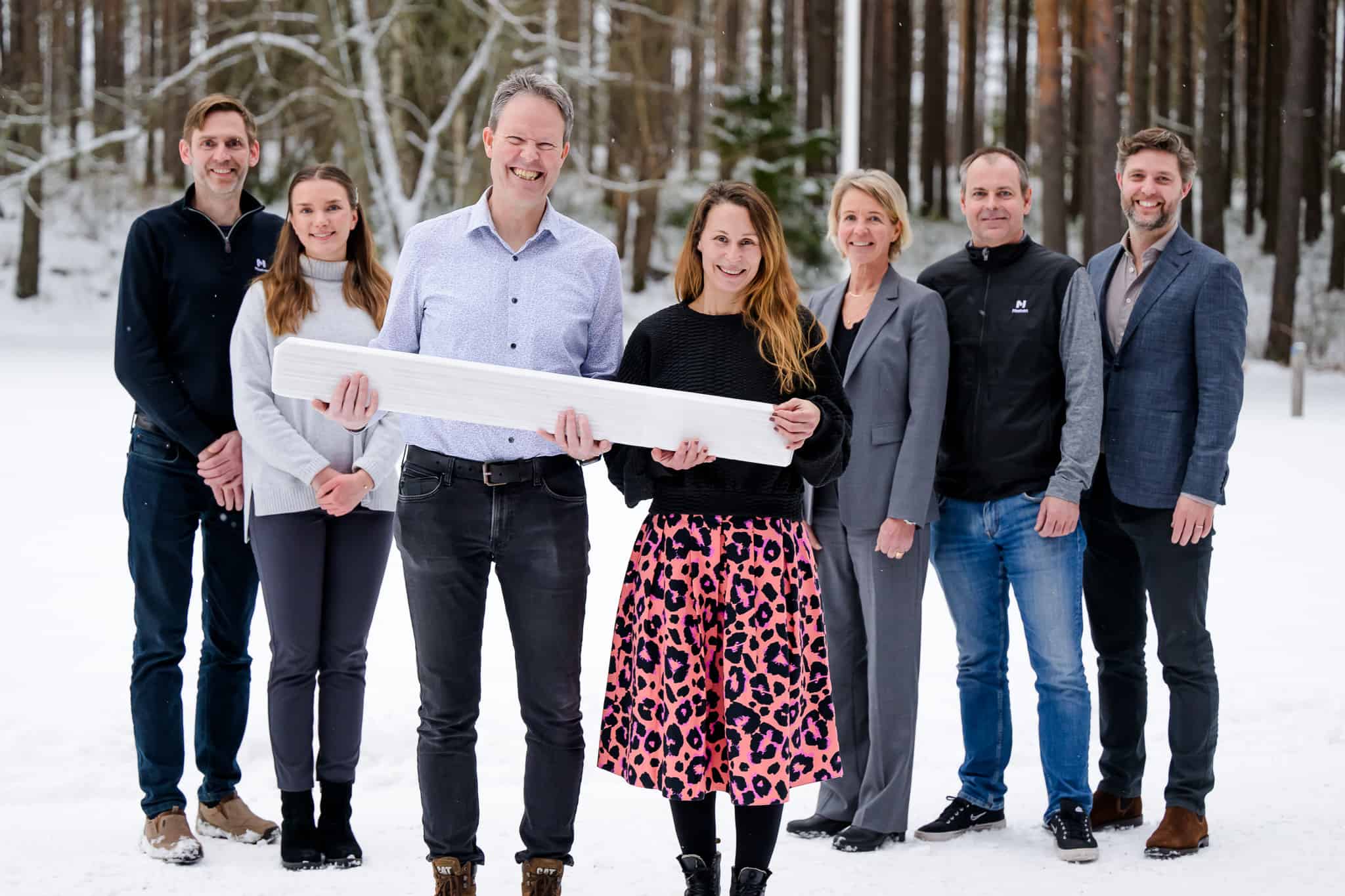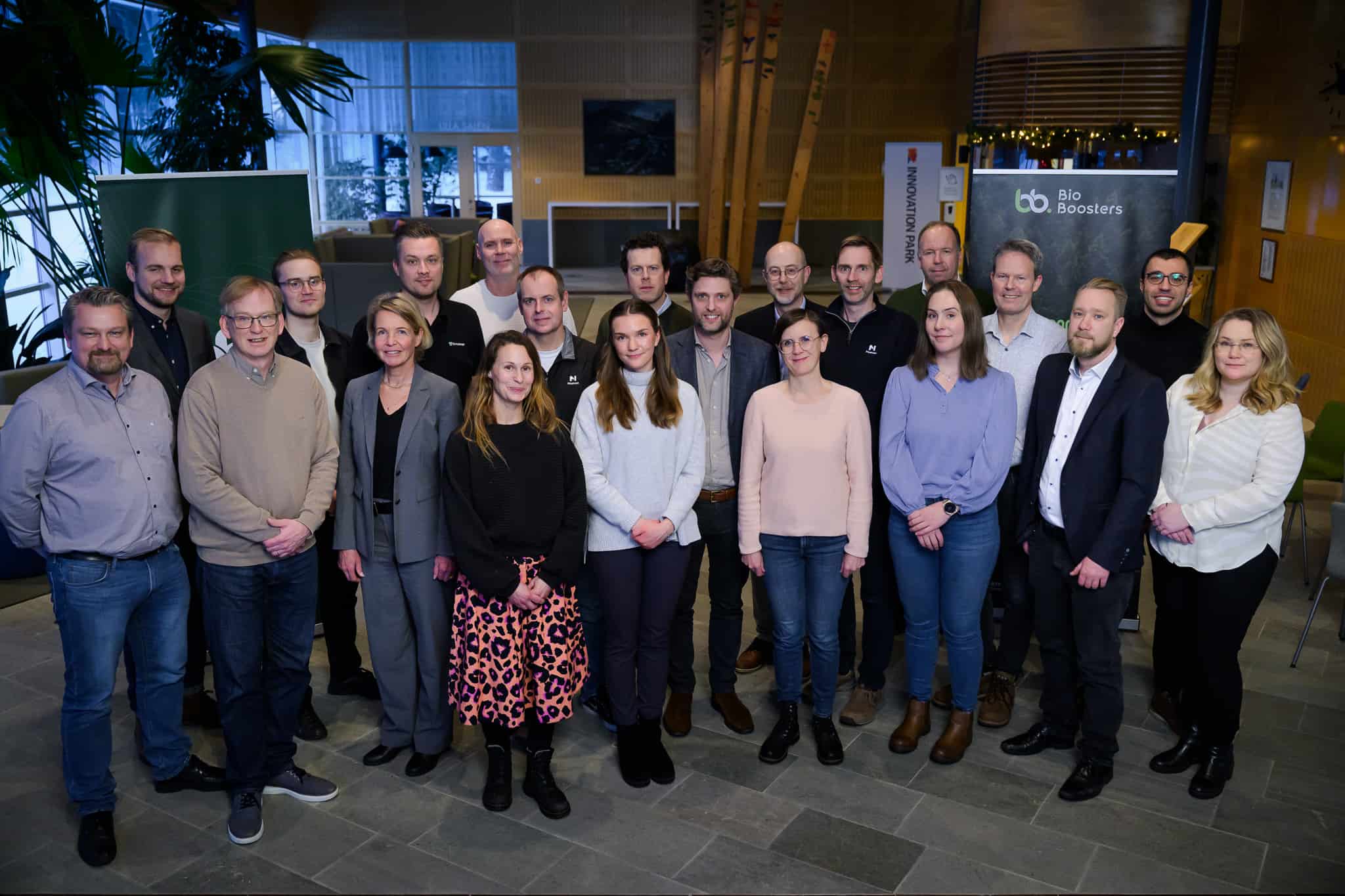
The story about MoelvenHackathon
16 January 2024
MoelvenHackathon
The organization of Moelven Wood´s hackathon generated 22 submitted solution proposals from 19 companiesacross the Baltic Sea Region. All suggest new, more sustainable, packaging solutions for Moelven Woods interior panels made of wood, which now are packaged in a fossil-based plastic wrap.
Following an open call for solutions, a few were selected to continue to the kickoff and then the development phase followed by the hackathon days organized in Karlstad, Sweden, on December 11-12, 2023.
Read more about the process from the interview with Malin Hildén from Paper Province, the organization that coordinated Moelven Hackathon.
What makes BioBoosters Hackathon unique?
In Sweden, hackathons are mainly associated with IT and programming and are short intense events, only lasting for 24 or 36 hours.
Unlike these typical hackathons, BioBooster’s hackathons range over a longer time and have an entire process leading up to the actual hackathon days, and it involves a lot of different industries.
A BioBooster hackathon lasts several weeks and can be divided into phases. For example, it is not only during the actual hackathon days, when the participants physically meet for two days, that the innovative development takes place. Already after the kickoff, held a few weeks before, the participants get to start refining their ideas with help from the challenge provider and selected mentors.
What is the impact of the BioBoosters Hackathon?
Thanks to Moelven Hackathon, Moelven Wood found a new packaging solution for the interior panels. This will hopefully contribute to a lower use of plastic and a lower carbon footprint.
Moelven Wood is the second challenge provider in Sweden to use the Bioboosters hackathon process. They are happy with the concept and see great benefits in using it again.
Tjalling Chaudron, Product Development Manager at Moelven Wood says: “It’s a very good concept. We sought innovation, and thanks to the hackathon, we have seen the breadth available in the market and the opportunities that come with it. We have gained a lot of knowledge about packaging that we didn’t have before, and we are very grateful to all the suppliers that participated.”
What kind of help did you get from the international partnership in organizing a BioBoosters Hackathon?
By having international partners going into the open call, we had a much bigger target group which widened our success rate. It made it possible for us to present Moelven Wood with a higher number of creative solutions than what we had been able to do on our own.
Among the 19 companies that presented solutions five were international. We mainly reached them thanks to our project partners.
Our partners also helped us find international competence to mentor some of the teams during the hackathon.
What lessons would you like to share with other Hackathon organizers?
We chose to invite large established companies to participate, and it affected the process more than we anticipated. Some companies were unwilling to pitch their solutions in a joint setting since some of the contestants were competitors.
Because of this, our kickoff and hackathon days were held in private settings, separating all companies. This affected the open and common innovation environment. The companies did not have the opportunity to collaborate in the way they could have, and were supposed to do, if they knew each other’s solutions and had an open dialog about them.
So, to the lesson. If you invite already well-established companies in the same industry, there is a big risk that they are competitors. If so, it changes the BioBooster original process.
Having said that, it still worked out very well in the end. Moelven Wood and the solution providers were satisfied!
Interactive map showing pilot locations. Use the arrow keys to move the map view and the zoom controls to zoom in or out. Press the Tab key to navigate between markers. Press Enter or click a marker to view pilot project details.







